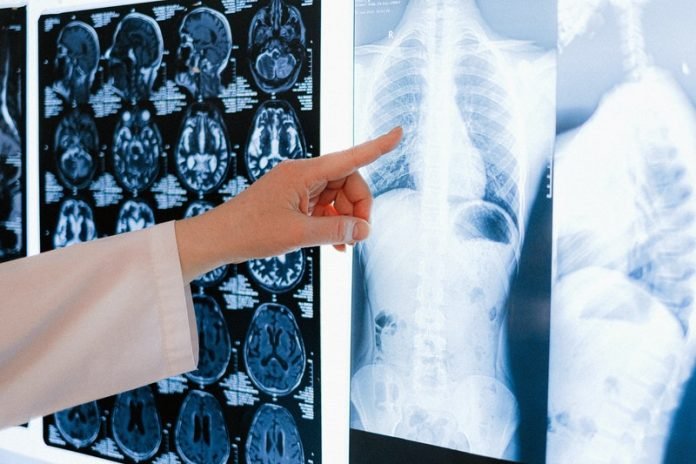
In a new study from the University of Southampton, researchers found most patients discharged from hospital after severe COVID-19appear to return to full health, although up to a third do still have evidence of effects upon the lungs one year on.
COVID-19 has infected millions of people worldwide. People are most commonly hospitalized for COVID-19 infection when it affects the lungs—termed COVID-19 pneumonia.
Whilst significant progress has been made in understanding and treating acute COVID-19 pneumonia, very little is understood about how long it takes for patients to fully recover and whether changes within the lungs persist.
In this study, the team examined the natural history of recovery from severe COVID-19 pneumonia up to one year after hospitalization.
83 patients in Wuhan, China were recruited after they were discharged from the hospital following severe COVID-19 pneumonia and were followed up after three, six, nine and twelve months.
At each time point, they underwent clinical assessment as well as measures of how well the lungs function, a CT scan of their chest to take a picture of the lungs, and a walking test.
Over 12 months in most patients there was an improvement in symptoms, exercise capacity, and COVID-19 related CT changes.
By 12 months the majority of patients appeared to have fully recovered although about 5% of patients still reported breathlessness.
A third of patients’ measures of lung function were still reduced—in particular how efficiently oxygen is transferred in the lungs into the blood—and this was more frequently found in women than in men.
In around a quarter of patients, CT scans showed there were still small areas of change in the lungs, and this was more common in patients with more severe lung changes at the time of hospitalization.
The team says women were more likely to have persistent reductions in lung function tests and further researchers is needed to understand if there is a sex-specific difference in how patients recover.
They also don’t yet know what happens beyond 12 months and this will need ongoing study.
If you care about COVID-19, please read studies about two-thirds of COVID-19 hospitalizations are due to these 4 health problems and findings of COVID-19 vaccinations: What you need to know about the second dose.
For more information about COVID-19 treatment and prevention, please see recent studies about this common blood thinner drug can help inhibit COVID-19 virus and results showing that this stuff in the body may prevent severe COVID-19 infection.
The study is published in The Lancet Respiratory Medicine. One author of the study is Dr. Mark Jones.
Copyright © 2021 Knowridge Science Report. All rights reserved.



